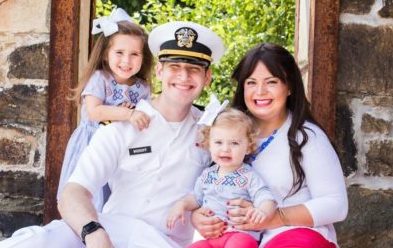I Didn’t Get To Choose My DNA, But I Did Get To Choose What To Do About It.

For as long as I can remember, breast and ovarian cancer were a part of my family. But the cancer was on my father’s side, affecting relatives much older than I, so I naively told myself I had nothing to worry about.
And then, last year, I got the call.
Cancer had hit my generation. The first of my cousins was diagnosed with Stage 3 breast cancer.
The very next day I scheduled my BRCA testing. Never once did I believe my test would be positive.
Until it was. BRCA2 positive.
I didn’t get to choose my DNA, but I did get to choose what to do about it.
So at barely 29 years old, I walked into an operating room for the first of four invasive surgeries to claim my life, before cancer (statistically) could.
As a military wife and mom of two little girls, I pride myself on having thick skin and a healthy dose of independence. But when it came to losing my breasts and being handed a limited window in which I could conceive more biological children in the future, I was not prepared AT ALL.
Emotionally, there was a big gaping hole.
And that’s where Sharsheret saved me. Talking to Sharsheret’s social workers and genetic counselor, I could be completely vulnerable. Sharsheret was safe. I immediately gained an extended family who knew exactly what I was feeling even before I did.
The national average of carrying a BRCA mutation is 1 in 500. That number is drastically higher for Ashkenazi women AND men, coming in at 1 in 40. As a community, we need Sharsheret to educate us about our increased hereditary cancer risk.
As someone who is BRCA positive, I don’t know where I would be today without Sharsheret.
So, please join me in making a year-end donation, ensuring we all have Sharsheret to learn from and lean on in our time of need.
Emma Widroff
